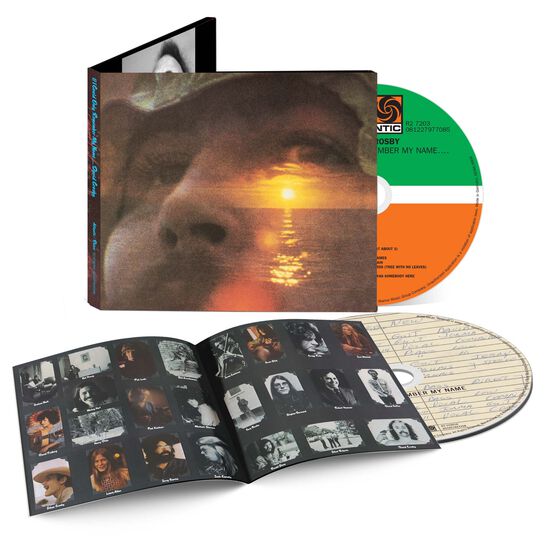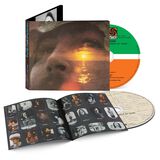
If I Could Only Remember My Name (CD)
Singer-songwriter David Crosby’s solo debut, IF I COULD ONLY REMEMBER MY NAME, was dismissed by critics when it came out in 1971. Over the years, however, appreciation has grown for the album’s adventurous aesthetic, stacked harmonies and haunting lyrics about loss and confusion. Billed as Crosby’s solo debut, the album was anything but a one-man project. Instead, it was one of his most collaborative efforts, featuring an all-star cast of players that included members of the Grateful Dead, Jefferson Airplane, and Santana, along with Graham Nash, Joni Mitchell, Neil Young, and others.
IF I COULD ONLY REMEMBER MY NAME turned 50 earlier this year and Rhino is celebrating with a 2-CD set that includes the album lovingly remastered from the original analog tapes, accompanied by a bonus disc that features a dozen unreleased demos, outtakes, and alternative versions. The new remaster was overseen by original album engineer Stephen Barncard with restoration and speed correction using Plangent Processes. IF I COULD ONLY REMEMBER MY NAME: 50th ANNIVERSARY EDITION will be available on October 15. On the same day, the newly remastered version of the original album will be released on 180-gram vinyl. The music will also be available from digital and streaming services the same day.
The liner notes that accompany the collection were written by Steve Silberman, co-author of Skeleton Key: A Dictionary for Deadheads and author of NeuroTribes: The Legacy of Autism and the Future of Neurodiversity. He writes: “…the stories behind the creation of If I Could Only Remember My Name make clear that its uplifting and redemptive qualities were the result of a close-knit group of gifted players pulling one of their own back from the brink. The album’s edge was tempered in the fire of life-altering tragedy.”
When Crosby started recording the album in 1970, he was grieving the death of his longtime girlfriend Christine Hinton, who was killed in a car accident a year earlier. At the time, Wally Heider Studios in San Francisco became a refuge for Crosby, who remembers Jerry Garcia showing up nearly every night. “There’d be that grin, and then that look in the eyes, and this fascination with the music,” Crosby recalls. “Easy, not forced, graceful, fun, ever-present. It was a kindness, I’m pretty sure. Jerry never said that, never even implied it. Just, ‘Hey, I heard you were doing something. What are you doing? Let’s do something.”
What they made was music that would be embraced by later generations of singer-songwriters and cited as an early example of the “freak folk” genre. On the original, the nine songs explore a wide range of moods and textures. Crosby’s swagger and Garcia’s stinging solos give “Cowboy Movie” its intensity, while “Song With No Words (Trees With No Leaves)” gently stretches out to a place between choral folk and modal jazz. For “Orleans,” Crosby transformed the French children’s song using the studio and its echo chamber to record a choir of his vocal harmonies.
The second disc uncovers nearly an hour of unreleased recordings from the making of If I Could Only Remember My Name. That includes the album’s first seeds, which Crosby planted on March 28, 1968 at Hollywood Recorders in Los Angeles. Together with producer Paul Rothchild, he recorded nascent versions of songs like “Tamalpais High (At About 3)” and more. Those tracks are joined by several unreleased session recordings, including “Coast Road,” “Dancer,” and an alternate version of “Cowboy Movie” that features Neil Young soloing instead of Garcia.
